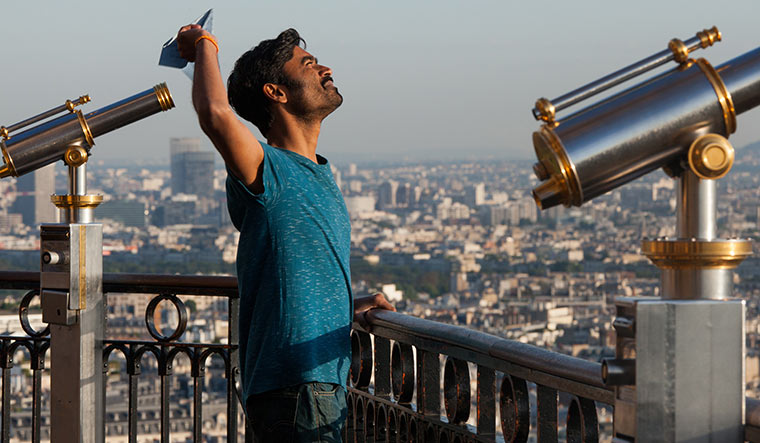While shooting his film The Extraordinary Journey of the Fakir in France, Canadian writer-director Ken Scott was a little shocked to find a bottle of wine on the lunch table every day. Drinking on the job is a strict no-no in Canada, he said with a laugh during a recent interaction with THE WEEK. As cool as he found it, he refrained from alcohol during work. Although he did not experience anything like this in other countries, he had many other fascinating moments. In India, for example, he was told that the common practice for filmmakers was to take only two shots of a scene; he liked to take at least eight. While convincing the Indian crew, he realised how they respected his needs as a filmmaker.
For a cross-border film that was shot in various countries, the best part for the team was, no doubt, their various discoveries and lessons learnt. The film is an adaptation of Romain Puertolas’s French bestseller, The Extraordinary Journey of the Fakir Who Got Trapped in an Ikea Wardrobe. Starring Dhanush in the lead, the movie is about Ajatashatru Patel, a small-time conman and magician from the ghettos of Mumbai, who travels across France, Spain, Libya and Italy in search of his father. During the journey, he falls in love, gets trapped in refugee camps, and faces many other unusual situations.
This is Dhanush’s first international film as an actor. He found the role a perfect blend of collaboration and blurring boundaries. He has a dance number with Bérénice Bejo, a romantic angle with Erin Moriarty, and much more. “Working with an international cast was a learning experience,” he says. “I feel fortunate to have travelled with the film crew to so many different parts of the world and understood their ideas about filmmaking.”
Dhanush, a multitasker by nature, is a little reticent while talking about how he prepared for his role as a boy from the Mumbai slums. “If I find time, great,” he says. “If I don’t, I will just follow what the director says.” It was the latter in the case of The Extraordinary Journey of the Fakir. In between his directorial and acting projects in Chennai, there was little time for Dhanush to prepare for his role as Aja. “But Ken Scott was very helpful,” he says. “He guided me through the making of the film.” According to him, his “understanding outside the world of cinema is shockingly little”.
He only knew a little about the plight of refugees before the film. “In fact, there were certain things that I could not even understand,” he says. “The makers had to explain it to me in detail. But the message has come out very beautifully in the film.” Dhanush, Scott believes, got the essence of the film right as he portrayed the character with a perfect balance of comedy and emotion.
Scott wanted to give the story a small emotional spin. In the book, Aja travels to buy a bed of nails from Ikea. But in the movie, he is searching for his lost father. “It was important for me to make the story a bit more grounded than the book,” says Scott. “The book was a bit more absurd. That kind of absurdity does not translate as well on screen. We kept the comedy, but grounded the story a bit.” Scott started his career as a comedian and believes that comedy remains his first language of communication. “It is a great way to talk about serious things,” he says. “Today, the plight of immigrants is a very important theme across the world. But I did not want it to become preachy or political. [I would] rather keep it simple yet important.”
One of the best things about collaborating with the author, Puertolas, while scripting the film, Scott says, was his openness to making changes. “The book is a book. Let’s make a good movie now,” Puertolas had told him. Re-imagining the story and shooting the film then became a lot more convenient. In the book, Aja lives in a Rajasthani village. So, the first thing that Scott did after coming to India was scout for locations in Rajasthan. But logistically, Mumbai worked better, so his hero is from Mumbai.
Another important aspect was to represent the immigrants from different parts of the world in the right manner. “And that would have happened with the writing, obviously, but the casting was also very important,” says Scott. It required working with casting directors in different countries very closely, which was challenging but rewarding. He refers to the scene of a camp in Libya. “In reality, it was shot in Belgium, and real immigrants act in that scene,” he says. “It was touching because this was their first job since they got to Belgium. We were very close to reality.”
The film, after doing the festival circuit, released in Spain and France last year and has been praised for its empathetic yet comic elements. It releases in other parts of the world like India, the UK, and the US on June 21. Dhanush only hopes that it is liked in the new territories, too. “Box-office numbers are as important as the process of filmmaking,” he says, “and I hope people like the film.”



